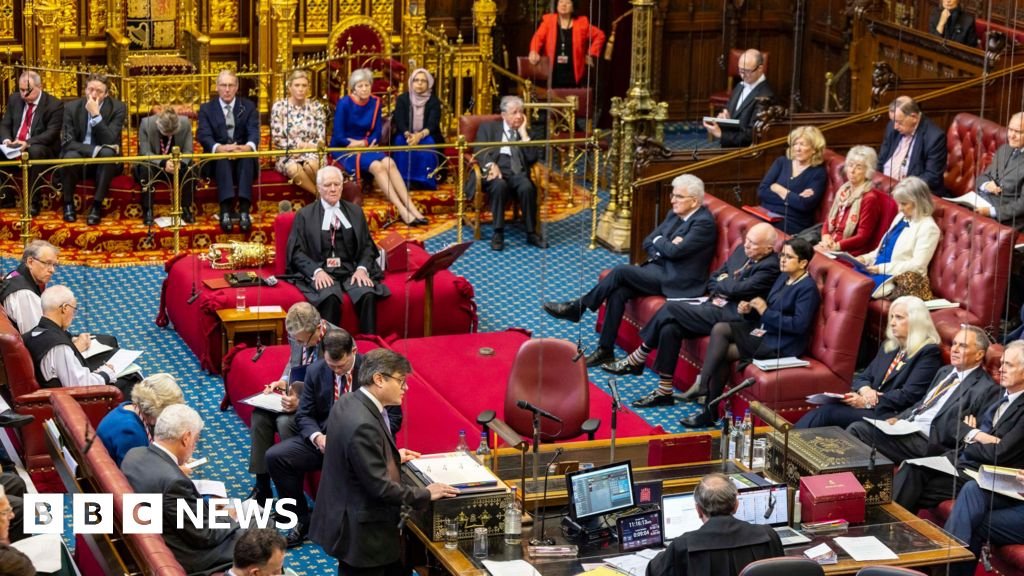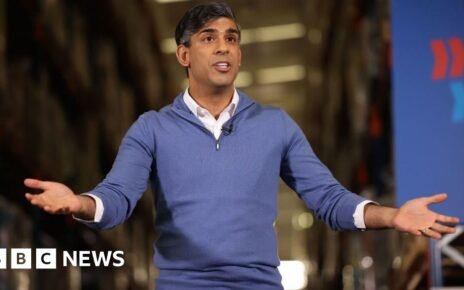Plans to get rid of the remaining hereditary peers from the House of Lords have been set out in the Commons, marking the biggest shake-up of Parliament in a quarter of a century.
Abolishing the 92 seats reserved for hereditary peers – who inherit their titles through their families – was one of Labour’s general election promises.
The aim is to finish reforms introduced by the last Labour government, which in 1999 revoked the 700-year-old right of all hereditary peers to sit in the Lords, leaving just 92 as a compromise with the Conservatives.
One of the 92, a former leader of the Lords, Tory Lord Strathclyde, condemned the move as a “high-handed, shoddy political act”.
Speaking in the Lords chamber, he argued it should be peers who rarely took part in debates who were removed, not hereditary ones, many of whom he said were very active participants and “some of our most senior and experienced” members.
Lords leader Baroness Smith noted that the measure had featured in Labour’s manifesto and in the King’s Speech, which outlined the government’s programme of laws.
She said there was nothing in the legislation to stop hereditary peers who were removed being nominated for life peerages in future.
She also observed that none of the remaining hereditary peers were women.
Labour has also promised to introduce a retirement age of 80 for members of the Lords, but says that move will follow later after consultation.
Another Conservative former cabinet minister, Lord Forsyth, described the removal of hereditary peers as a “naked attempt to disable opposition in this House”, because – given the size of Labour’s majority in the Commons – it was the only part of Parliament that would properly scrutinise legislation.
Earlier, constitution minister Nick Thomas-Symonds said the measure to remove hereditary peers from Parliament was a “landmark reform to our constitution”.
“The hereditary principle in law-making has lasted for too long and is out of step with modern Britain.
“The second chamber plays a vital role in our constitution and people should not be voting on our laws in Parliament by an accident of birth.
“This bill shows this government’s commitment to delivering on our manifesto and is an important part of putting politics in the service of working people,” he added.
Sir Keir Starmer is in favour of abolishing the House of Lords and replacing it with an elected Assembly of the Nations and Regions, but that will not happen before the next election.
Labour’s election manifesto called House of Lords reform “long overdue” and “essential” as the chamber is too large and many peers fail to serve democracy.
Several attempts have been made to change the upper chamber over the years, but reforming the House of Lords is notoriously difficult as peers themselves must approve any changes.
Sir Tony Blair’s Labour government reached a deal with the Tories to massively reduce the number of hereditary peers from around 800 to the current 92.
During the coalition government, an attempt by the Liberal Democrats to replace the House of Lords with an elected chamber collapsed after talks with Conservative rebels failed.
About half of hereditary peers still in the chamber are Conservatives, with the rest mainly independent crossbenchers, and a small number of Labour and Liberal Democrat peers.
On the Conservative benches is Lord Attlee – grandson of Labour Prime Minister Clement Attlee.
Viscount Stansgate, whose father Tony Benn renounced his peerage to sit in the Commons, is one of four Labour hereditary peers.
The Duke of Wellington, whose great-great-great-grandfather defeated Napoleon at Waterloo in 1815, and Lord Ravensdale, the great-grandson of Oswald Mosley who founded the British Union of Fascists in 1932, both sit as crossbench peers.
The Earl Marshal and Lord Great Chamberlain had been expected to keep their seats due to ceremonial functions in state occasions, but will also be removed under the plans.
Most Lords are entitled to a £342 daily allowance for each sitting day they attend – although they can choose not to claim it.
Some receive a salary instead, including the Lord Speaker who receives £106,363.
Government ministers in the Lords are entitled to ministerial salary, external, which ranges from £66,884 to £106,363, although the actual amount claimed is slightly below these figures.




